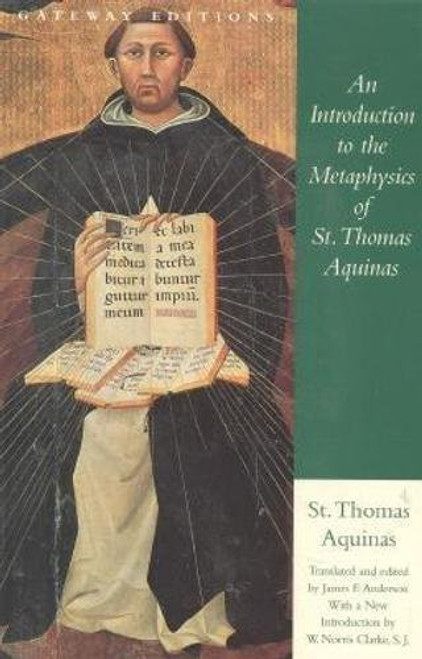Product Overview
Written by a highly respected scholar of Thomas Aquinas's writings, this volume offers a comprehensive presentation of Aquinas's metaphysical thought. It is based on a thorough examination of his texts organized according to the philosophical order as he himself describes it rather than according to the theological order.
In the introduction and opening chapter, John F. Wippel examines Aquinas's view on the nature of metaphysics as a philosophical science and the relationship of its subject to divine being. Part One is devoted to his metaphysical analysis of finite being. It considers his views on the problem of the One and the Many in the order of being, and includes his debt to Parmenides in formulating this problem and his application of analogy to finite being. Subsequent chapters are devoted to participation in being, the composition of essence and esse in finite beings, and his appeal to a kind of relative nonbeing in resolving the problem of the One and the Many. Part Two concentrates on Aquinas's views on the essential structure of finite being, and treats substance-accident composition and related issues, including, among others, the relationship between the soul and its powers and unicity of substantial form. It then considers his understanding of matter-form composition of corporeal beings and their individuation. Part Three explores Aquinas's philosophical discussion of divine being, his denial that God's existence is self-evident, and his presentation of arguments for the existence of God, first in earlier writings and then in the Five Ways of his Summa theologiae. A separate chapter is devoted to his views on quidditative and analogical knowledge of God. The concluding chapter revisits certain issues concerning finite being under the assumption that God's existence has now been established.
John F. Wippel, professor of philosophy at The Catholic University of America, was recently awarded the prestigious Aquinas Medal by the American Catholic Philosophical Association. In addition to numerous articles and papers, Wippel has coauthored or edited several other works, including Metaphysical Themes in Thomas Aquinas and The Metaphysical Thought of Godfrey of Fontaines, both published by CUA Press.
PRAISE FOR THE BOOK:
The quality of Wippel's historical research and interpretation and the detail of his argumentation make this a work that will have to be taken account of in any further studies of this topic. - John Boler, International Studies in Philosophy
A carefully and solidly argued presentation of Aquinas's metaphysics by a scholar of medieval philosophy and a superb metaphysician. It should stand on the library shelf of every student of medieval philosophy, sharing the stage with Wippel's other dependable works. ??Prof. Stephen F. Brown, Boston College
In Wippel we have a master of medieval metaphysics who is at the height of his powers and who can bring to bear on this work of interpretation years of study, not only of Aquinas but also of the whole context of medieval metaphysics in which Aquinas thought and wrote. The result is a monumental work which will quickly become the definitive work on Aquinas's metaphysics. ??Prof. Eleonore Stump, St. Louis University
Wippel proposes to 'set forth Thomas Aquinas's metaphysical thought, based on his own texts, in accord with the philosophical order. . . .' This is a bold, even audacious proposal, but one that Wippel succeeds in realizing, thanks to his expansive and detailed knowledge of a field in which he has worked for more than twenty years. He has total command not only of the works of Thomas, of his sources, and of his earliest commentators, but also of the secondary literature of this century in English, Italian, French, German, and Spanish. ??Gregorianum
[A] positively magisterial account of its subject







